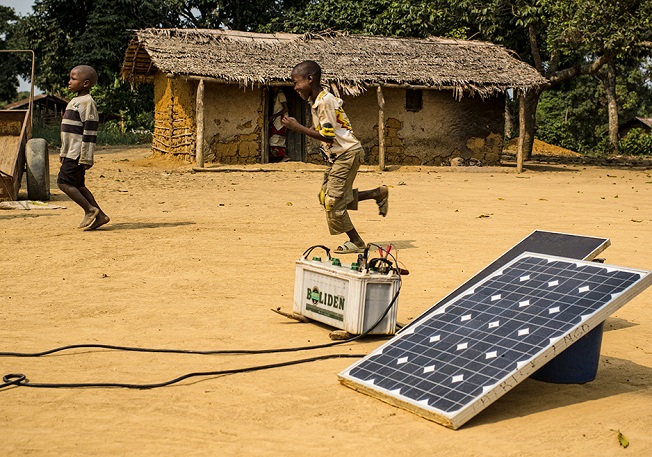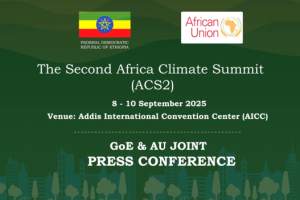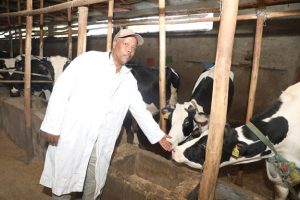
Access to electricity in sub-Saharan Africa was set to decrease in 2021. Over 600 million people did not have electricity connections in the region that year, while in 2020 electrical energy was inaccessible to 581 million Africans.
This means that around five out of every 10 individuals below the Sahara lived in the dark. In rural areas, the situation was even worse and more than 70 percent of the population lacked access to electricity. However, the continent has abundant hydro, solar, wind, and bioenergy resources, but the energy sector, especially, accesses to electricity, has been a huge challenge to the continent. The electricity sector in Africa faces huge challenges which include low generation capacity and efficiency, high costs, unreliable energy supplies, and low access rates.
These challenges have adversely affected socio-economic development on the continent. Hence, there is a need to develop robust and large-scale energy infrastructure and markets at the continental, regional and national levels to meet current and future demand. Besides, urgent need for the harmonization of policies, legislation, regulatory and institutional frameworks at the regional and continental levels to enhance coordination, cooperation and remove barriers to access to energy should be applied. African Union (AU) Infrastructure and Energy Commissioner Amani Abouzadi (Ph.D.) said that over half a billion Africans still lack access to electricity and some other 900 million are without clean cooking. Principally, the challenge of reliable energy in the continent has been revealed during the outbreak of the COVID-19 pandemic.
During the pandemic, only 25 percent of health centers in Sub-Saharan Africa had access to reliable sources of energy which is a very serious challenge to the sector, she noted. Access to reliable energy resources is a structural problem. For instance, the AU, since the outbreak of the pandemic, has designed various programs to prevent and take precautions which include addressing vaccination to Africans.
However, most of the health centers suffer from reliable energy resources that made the application of programs slow down. This, in turn, makes it difficult to address vaccines products in rural and remote areas. Hence, improving access to energy resources is key for cooling the vaccine, cooking, and cleaning, she elaborated. Access to reliable energy has indeed been a series of problems for Africa.
To solve reliable energy problems, it needs strategic requirements to reach the objective of a harmonized regulatory framework in the electricity sector in Africa. It also requires strong coordination to reinforce the political and technical role of AU member states.
Besides focusing on strong political commitment is imperative to create awareness, independent and transparent regulators, share out and allocate adequate responsibilities from national to regional authorities and from regional to continental levels. Particularly, innovative solutions such as mini-grids and off-grids should be rolled out in rural and remote areas to help the population and to make sure the provision of power to economic centers and water generators.
According to Commissioner Amani Abou-zadi (Ph.D.), Africa should work to ensure the development and production of renewable energy sources. Because renewable energy production is a major advantage to the continent since it is readily available and abundant everywhere in Africa. In the era of globalization where the world is marching to digitalization, the availability of energy is fundamental toward development and social progress.
Taking this situation into consideration, some African countries, including Ethiopia, are building a dam for hydroelectric power. Energy production is imperative for digitalizing the institutions and the various sectors in Africa, especially, for e-agriculture, e-health, to collect, and analyze data, digital ID, cyber security, and so on. Because bringing the activities of the continent online is a lifeline.
So, member states should focus on the development of natural gas and renewable energy sources, she explained. A country like Ethiopia has already started building dams for hydropower generation. Among others, the Grand Ethiopian Renaissance dam is worth mentioning. The Grand Ethiopian Renaissance Dam (GERD is under construction in the Benishangul-Gumuz region of Ethiopia, on the Blue Nile River.
The main dam will be 145m high and 1,780m long. The reservoir, with a surface area of 1,680m2 at full supply level (FSL), will be formed in the middle section of the dam, between the left and right banks. The dam’s construction is expected to create up to 12,000 jobs. Approximately 20,000 people will be resettled during the project. The reservoir and dam will offer major benefits to Ethiopia, Egypt, and Sudan.
This shows that the Ethiopian energy development strategy for renewable and clean energy is highly appreciable that can be emulated as a benchmark for the AU and its member states. Although the country is not developed, it is building one of the biggest dams on the continent that is climate-friendly. “Developing and access to renewable energy aiming at generating clean energy, since it avoids fossil fuel, is significant to the continent.
Improving the energy that we are using into natural gas is also important to have the cleanest energy that is not affecting our health and environment,” she added. Apart from developing and generating energy, it is important to utilize the energy as effectively and efficiently as possible.
As stated by Commissioner Amani Abou-zadi (Ph.D.), “we have large progress for energy efficiency in the continent, nevertheless, almost 30 percent of the energy produced is lost either in the transmission line or using machines or equipment that are not saving energy or energy efficiency.
This should be rectified.” So, it is imperative to work to improve the production and expansion of renewable energy such as hydroelectric power, and natural gas while ensuring effective and efficient use of energy. As a return, it will help to use the energy and the power which can support the living condition of people, and the industries of the continent, she noted.
The African continent is indeed blessed both in renewable and nonrenewable energy sources, however, the energy deficit has become a bottleneck for the continent to come out of poverty and address the COVID-19 vaccination and related services.
The commission, therefore, has to encourage and support projects like GERD since it will support the initiative to fulfill the ambition of urbanization promoting renewable energy programs of the AU.
BY EPHREM ANDARGACHEW
The Ethiopian Herald 13 February 2022




